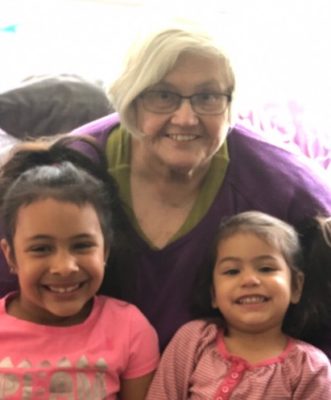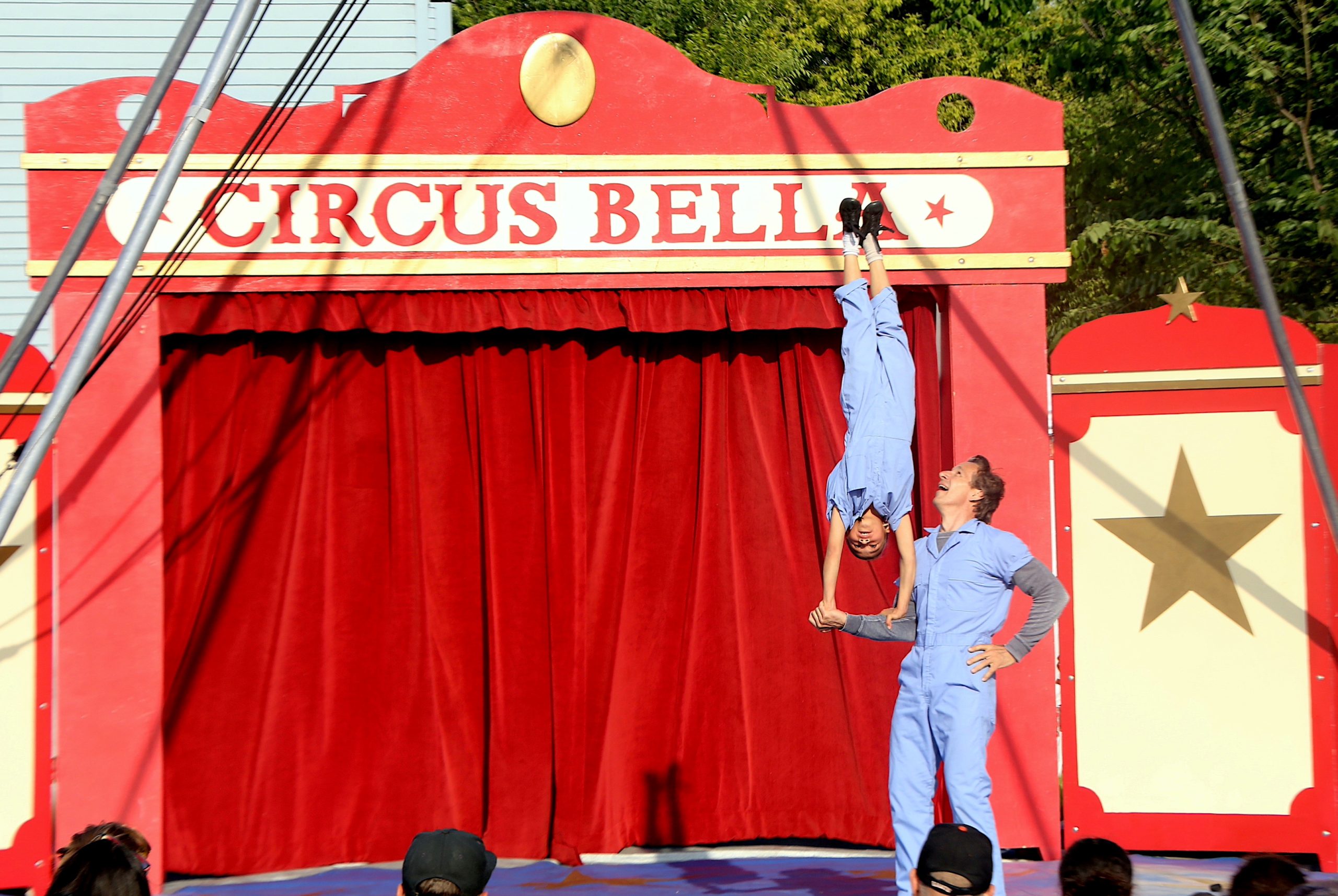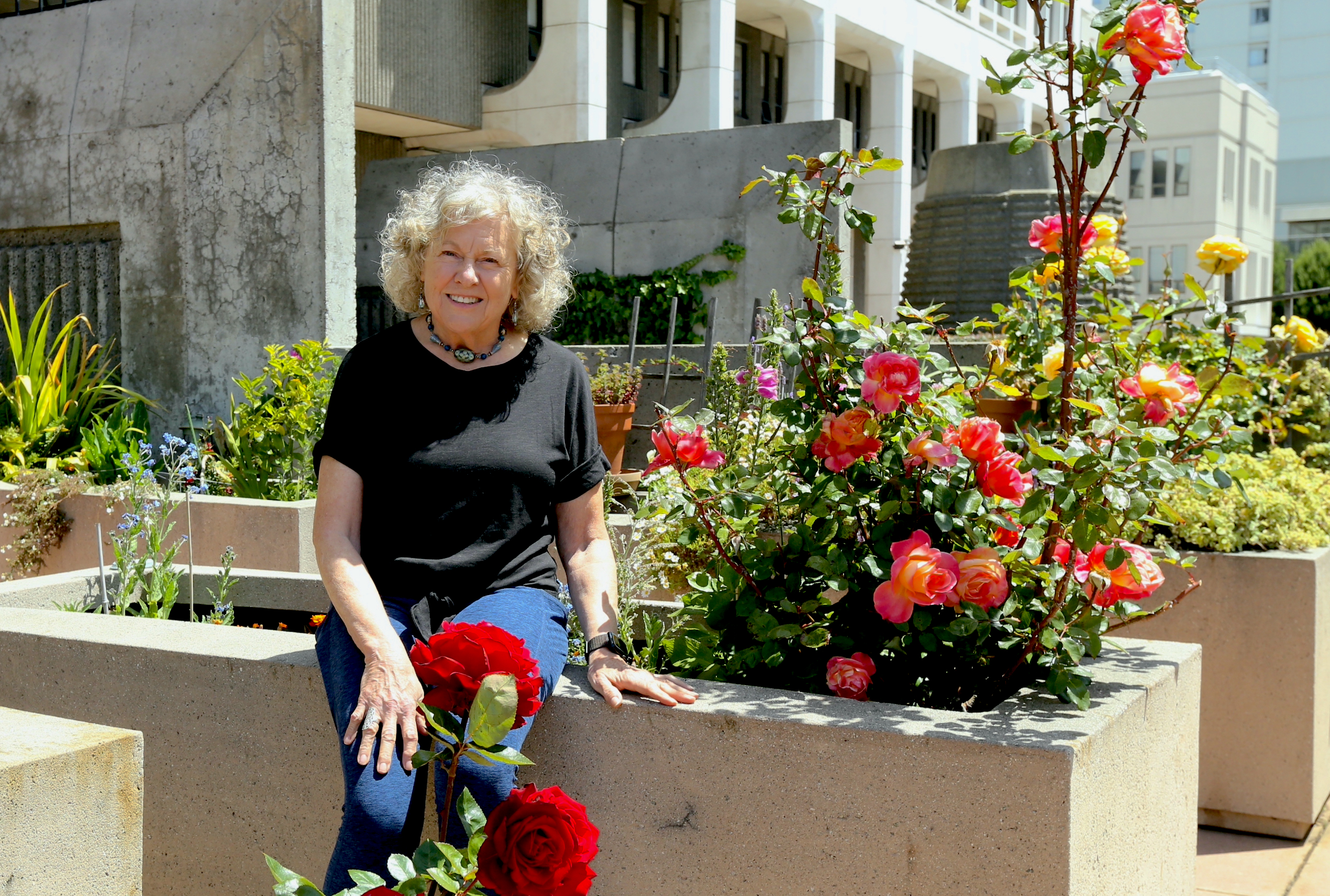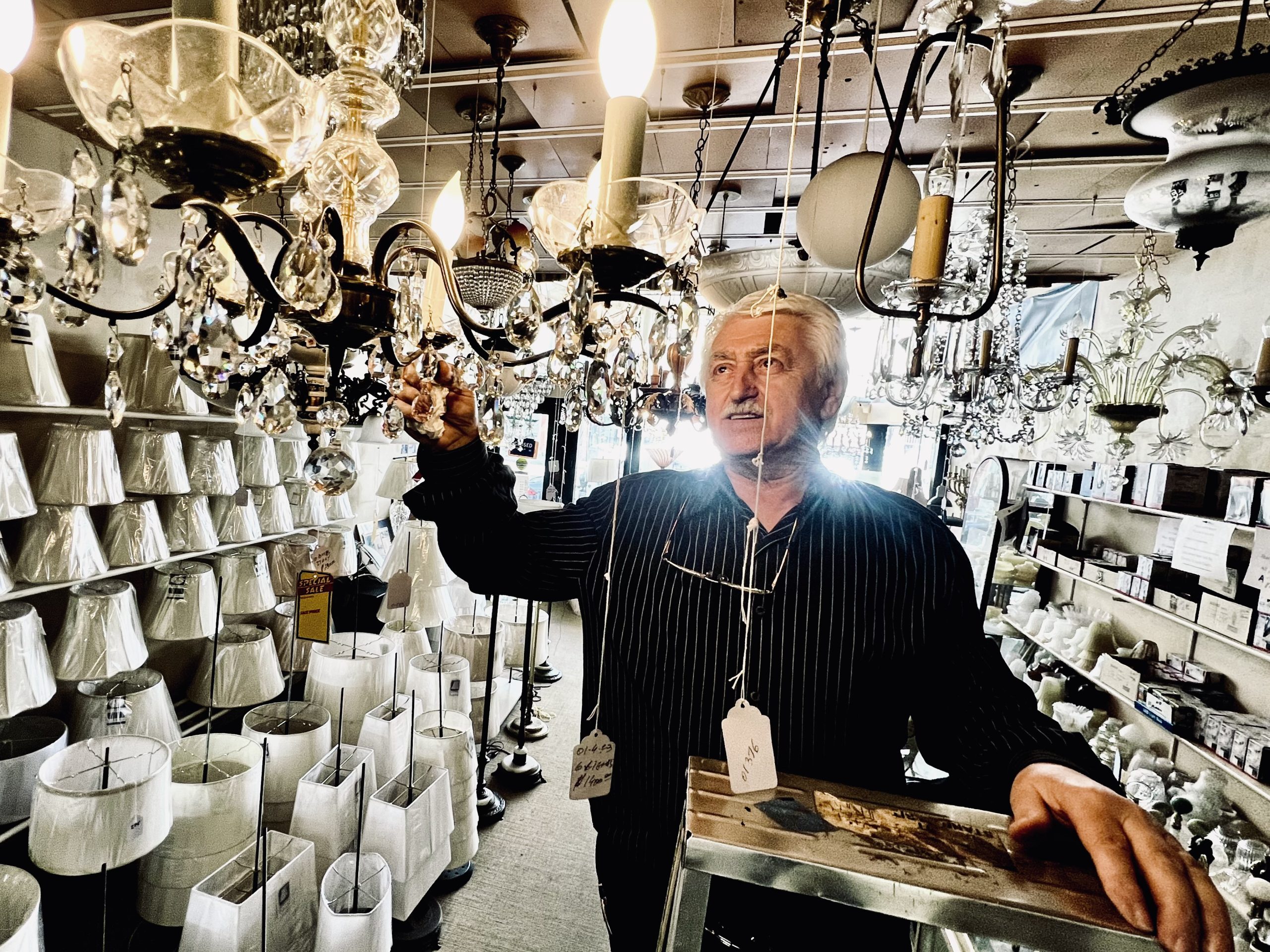Life after polio? For this mother and activist, not a missed step

From the time she contracted polio at four, Susan Suval has never let the disease that took the use of her right leg define her life.
“My mother thought she’d have to take care of me her whole life,” said Suval, now 73. “I proved her wrong.” Her mother fought to send her to public school, where Suval developed the impetus to fight for herself.
“They wanted to put me in a special education class. My mother said, ‘It’s her leg that’s paralyzed, not her brain.’ That set them straight.” Suval’s mother wheeled her to school in a wagon. At that time she wore a brace and used crutches.
From then on, Suval demonstrated the spitfire and grit that motivated her in school, gave her an adventuresome spirit – and led her to marry, raise a family and become incredibly active in her community.
When her kids were young, she joined their nursery school board. That led to membership in the local PTA, then the San Francisco District PTA. Then, she turned her sights back to her Sunset District neighborhood, where she helped organize its first community coalition. In 2003, Suval was honored by The San Francisco Board of Supervisors as a “Woman Making History” from District Four. Later, “to keep from getting bored,” she joined the Sunset Community Democratic Club, becoming its president in 1998. More recently, she helped organize the Parkmerced Action Coalition.
And that’s just the headlines.
Everyone knew someone who had polio
Born in Pequot Lakes, Minn., Suval grew up in Omaha, Neb. The family, now including a son, moved there shortly after World War II so her father could work in his family’s contractor business.
Suval was easily accepted by her schoolmates. She couldn’t play sports but she could participate as scorekeeper. She could bat in softball, having another kid run the bases. She always exhibited a “can do attitude.”
In high school, Suval made a friend who also had polio. They played online games, such as the Scrabble- like “Word with Friends.”
“Everyone knew someone who had polio. It wasn’t such a big deal,” said Suval.
In 1963, Suval decided to attend a small Lutheran liberal arts college, Gustavus Adolphus in St. Peter, Minn. “From watching Perry Mason on TV, I decided I wanted to be a lawyer. My advisor just laughed at me.”
But reconnecting with some friends in Omaha, Suval decided to transfer to The University of Nebraska at Omaha, where she got a liberal arts degree. Her interests led her to take a semester of library science in graduate school. “I knew I didn’t want to be a teacher, and I didn’t want to study as hard as pre-law demanded.”
But, it was the ’60s and the adventurer bug bit her. She sought new horizons. After considering Kansas City or Minneapolis, she settled on San Francisco, where she has been ever since. “I came in the spring of 1968. I didn’t have a clue about the 1967 Summer of Love before I arrived.”
Suval got a job as a librarian in the marketing research department of the P&O Steamship Navigation Company. She wanted to continue her library science education, but she couldn’t afford the out-of-state tuition at the University of California- Berkeley. There weren’t any other options at that time, she said.
Meanwhile, she met her future husband, Bob, also employed at the steamship company. “He was from Brooklyn. I liked his accent. He was on the quiet side and had a great sense of humor.”
Weaving and child-rearing
Shortly after they married, in 1972, P&O moved its offices to Los Angeles. Her husband took a job with an auto glass company, and Suval started working part-time.
“I became so totally impassioned with textiles, I started working part-time so I could take weaving lessons.” Over the next 15 years, Suval mastered the art of weaving to the point where she was exhibiting and selling wearables and wall-hangings. “Just when we were a little stretched, I’d get a check from my art.”
Her son, Adam was born in 1979, and two years later her twin girls, Sarah and Rebecca. “I am sure that weaving helped me retain sanity when I was dealing with three children under three.”
By this time the Suval family was living in a rented home near Ocean Beach in the Sunset District.
As soon as her children entered the Sunset Cooperative Nursery School, Suval became board treasurer. It helped defray her children’s tuition. That was her first step toward her life-long involvement in children and youth issues and education.
Next, she joined the PTA, volunteering in the classroom and writing its newsletter. Soon, Suval was appointed to the local PTA Board where she developed several curriculum enrichment projects and secured funding grants. The project she’s most proud of was “the redesign and reorganization of the school library.”
“At one point I reached a level in PTA which I could never have reached in the business world because of no business experience,” she said. “I was so proud that the Superintendent of Schools would take my calls.”
During those years, Suval also worked on several projects with Coleman Advocates for Children and Youth, an organization that supports low-income families. She served on their board until 2011, and was honored by them on their 20th anniversary.
Always something on her plate
Because she was always looking for new ways to contribute, Suval’s interest widened to her Sunset community. “I always seemed to need to have something else on my plate in addition to my family.”
Suval helped organize the Sunset District Neighborhood Coalition and has been chair from 2000 to the present. In an effort to organize the Sunset’s large, ethnically diverse population, the coalition established the first Community Festival in 1994. Suval was co-coordinator of the first festival and continues to work on the annual event.
“It was the skills I developed with the PTA that gave me the confidence to contribute to the development of the Sunset District Neighborhood Coalition,” she said.
Suval was also involved with a youth-serving cooperative that evolved into the Sunset Neighborhood Beacon Center and the Sunset Youth Services. She was also on the development board of NeighborNet, a communication strategy for the southwestern communities in San Francisco.
Suval thinks one of the reasons she became a community organizer was because she wanted “just to get the job done.” Her mother had volunteered with PTA and in her local hospital gift shop. Her strong Midwestern sense of self-reliance kept her from going to an orthopedist for years. She avoided wheelchairs and devised her own method of using crutches: A regular crutch under her right arm and a Canadian forearm crutch under her left arm kept her right arm free.
A husband’s health challenges
It wasn’t until her husband died that she used a wheel chair for the first time. “Why didn’t I use this year’s ago?” she wondered.
It was her can-do attitude that helped her through his death and other later life challenges. He started having serious heart problems in his 50s and died in 2002 at age 60. In 2007, her landlord tried to evict her from her home of 26 years. She fought and won that time, but was evicted at the end of 2009.
It was then that Suval moved to Park Merced, where she lives now. A roommate from San Francisco State helps with the rent. But as per past performance, she became active in forming the Park Merced Action Coalition, a resident group, and becoming vice-president.
In March, her independent living was interrupted by a fall she took getting off her bed. “I am so happy to have friends and family to count on,”Suval said.
Expect to see her back soon in her electric wheelchair escorting her granddaughters to the neighborhood playground.





